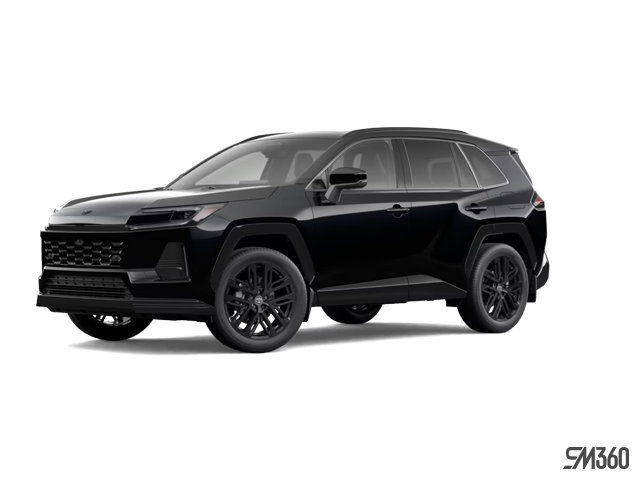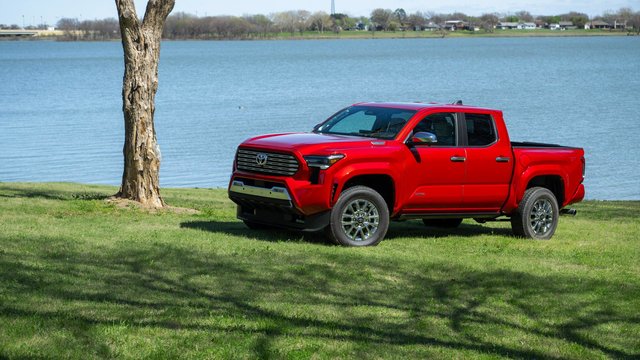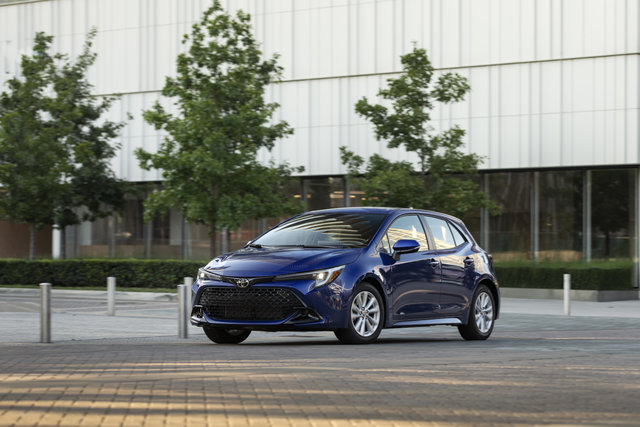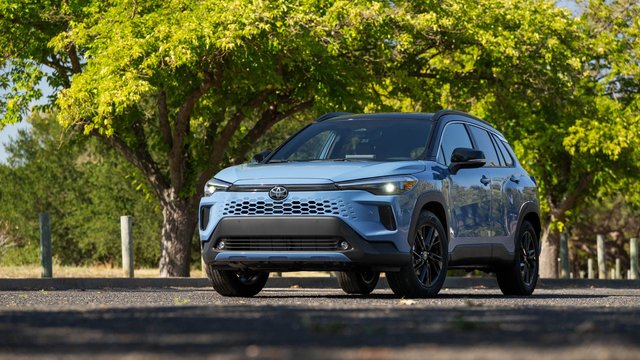When it was introduced last year, for the 2025 model year, the Toyota Tacoma i-FORCE MAX Hybrid...
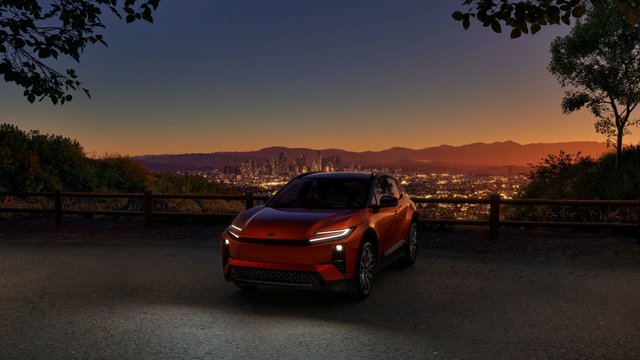
The 2026 Toyota C-HR Battery Electric Vehicle brings 338 horsepower and dual-motor all-wheel drive to the compact crossover segment. With acceleration to 100 km/h in around 5.2 seconds and a manufacturer-estimated range of up to 465 km, the XSE AWD model targets Ontario drivers who want electric performance without sacrificing daily usability.
Built on Toyota's dedicated e-TNGA battery electric vehicle platform, the C-HR BEV combines a low centre of gravity, precisely tuned suspension, and instant electric torque. Here's how the AWD model delivers an engaging driving experience.
- Dual-Motor All-Wheel Drive System
The C-HR BEV XSE AWD houses electric motors in both the front and rear eAxles. This dual-motor configuration delivers 338 horsepower combined system output—117 more than the front-wheel drive SE model.
The AWD system provides on-demand torque distribution to all four wheels. During acceleration, both motors work together to launch the vehicle. In normal driving, the system adjusts power delivery based on road conditions and driver input.
The instant torque delivery from electric motors eliminates the lag associated with traditional internal combustion engines. Throttle response is immediate, making highway merging and passing manoeuvres more confident.
- Acceleration Performance
The XSE AWD model accelerates from 0 to 100 km/h in around 5.2 seconds. This performance level puts the C-HR BEV ahead of many compact crossovers, electric or otherwise.
The acceleration feel is smooth and linear. Unlike turbocharged engines that build boost gradually, electric motors deliver full torque from a standstill. The result is consistent acceleration across the speed range.
For Mississauga drivers navigating the 401 or QEW, this performance translates to easier merging and safer passing. The electric powertrain responds instantly to throttle inputs without downshifting delays.
- Low Centre of Gravity and Platform Rigidity
The 77-kWh lithium-ion battery pack mounts under the floor, between the front and rear axles. This underfloor placement lowers the vehicle's centre of gravity compared to conventional crossovers.
A cross-framing structure surrounds the battery pack, adding rigidity to the chassis. Toyota engineers designed the e-TNGA platform specifically for battery electric vehicles, optimizing weight distribution and structural strength.
The low centre of gravity reduces body roll during cornering. The C-HR BEV feels planted through turns, with less of the top-heavy sensation common in taller crossovers.
- Precisely Tuned Suspension Components
Toyota engineers tuned the C-HR BEV's suspension components specifically for electric vehicle characteristics. Spring rates, damper performance, and anti-roll bar stiffness all receive individual attention.
The suspension calibration balances ride comfort with handling response. The system absorbs road imperfections while maintaining body control during direction changes.
The precise tuning complements the low centre of gravity and rigid platform. Together, these elements create a driving experience that feels more connected than typical compact crossovers.
- Regenerative Braking Control
Steering wheel-mounted paddle shifters control regenerative braking intensity. Drivers can select from four levels of regenerative braking power.
Higher regenerative braking settings slow the vehicle more aggressively when lifting off the accelerator. This converts more kinetic energy back into battery charge and can reduce brake wear.
Lower settings provide a more traditional coasting feel. Many drivers in Ontario will appreciate the flexibility to adjust regenerative braking based on driving conditions—stronger settings for city traffic, lighter settings for highway cruising.
The regenerative braking system feeds recovered energy back to the 77-kWh battery pack, helping extend range during daily driving.
C-HR BEV XSE AWD Key Specifications
|
Specification |
Value |
|---|---|
|
Horsepower |
338 hp (combined system output) |
|
0-100 km/h |
Around 5.2 seconds |
|
Drivetrain |
Dual-motor All-Wheel Drive |
|
Battery Capacity |
77 kWh |
|
Estimated Range |
Up to 465 km |
|
DC Fast Charging |
10-80% in around 30 minutes (ideal conditions) |
|
Cargo Space (rear seats up) |
720 L |
What This Means for Ontario Drivers
The 2026 C-HR BEV XSE AWD will offer Mississauga drivers an electric crossover that prioritizes performance alongside efficiency. The dual-motor AWD system provides confident acceleration and all-weather traction, while the 465 km estimated range handles daily commutes and weekend trips across Ontario.
Learn More at Erin Park Toyota
The 2026 Toyota C-HR BEV will arrive at our Mississauga dealership in 2026. Connect with our team at Erin Park Toyota to stay updated on availability and reserve your spot for a test drive when the C-HR BEV reaches our showroom.
Other Articles That May Interest You
Choosing the right hybrid for your daily drive means balancing efficiency, practicality, and...
Navigating slow-moving traffic can be exhausting, especially during long commutes or extended...


